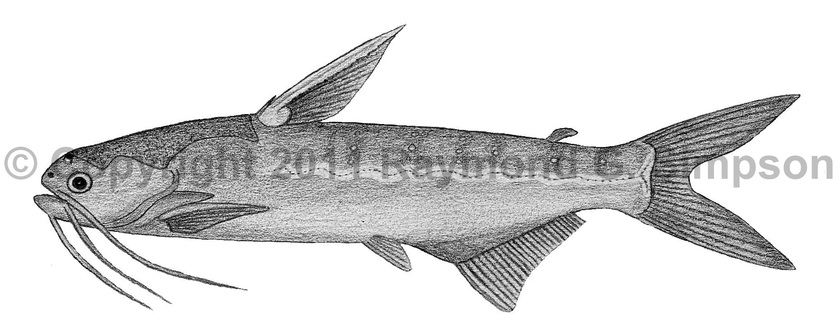
Common Name
Cocosoda Catfish
Year Described
Bloch, 1794
Identification
Dorsal Fin: I, 6
Anal Fin: 20-25
Body stout and robust with a flattened head but a compressed caudal peduncle. Mouth terminal and as wide as head. No teeth in roof of mouth. Eyes on side of head. Nostrils well spaced. One pair of maxillary barbels and 2 pairs of mental barbels. Body unarmored except for a bony shield over head that runs to dorsal origin. Shield with a honeycomb texture. Dorsal fin with a strong spine that is swollen at the base. Adipose fin present. Pectoral fin equal to dorsal fin length with a strong spine. Pelvic fin inserted far back on body. Anal fin slightly concave. Caudal fin strongly forked. No scales. Lateral line visible and wavy.
Color
Body steel blue to whitish or yellowish. Belly unmarked pale or silvery. Large fish with dark head and dorsal midline and younger fish with with dense black melanophores. Fins dusky yellowish to dark gray. Caudal fin with distinct black border.
Size
Maximum size to 30cm TL, but usually <25cm TL.
Habitat
Found in brackish waters at the lower reaches of rivers. Bottom dwelling on mud.
Range
Venezuela to northern Brazil, in the major river delta regions of the Amazonian plume.
References
Carpenter, K.E., & De Angelis, N. (Eds.). 2002. The living marine resources of the Western Central Atlantic (Vol. 2, pp. 602-1373). Rome, Italy: Food and agriculture organization of the United Nations.
Other Notes
The only known brackish water representative of this large freshwater family.